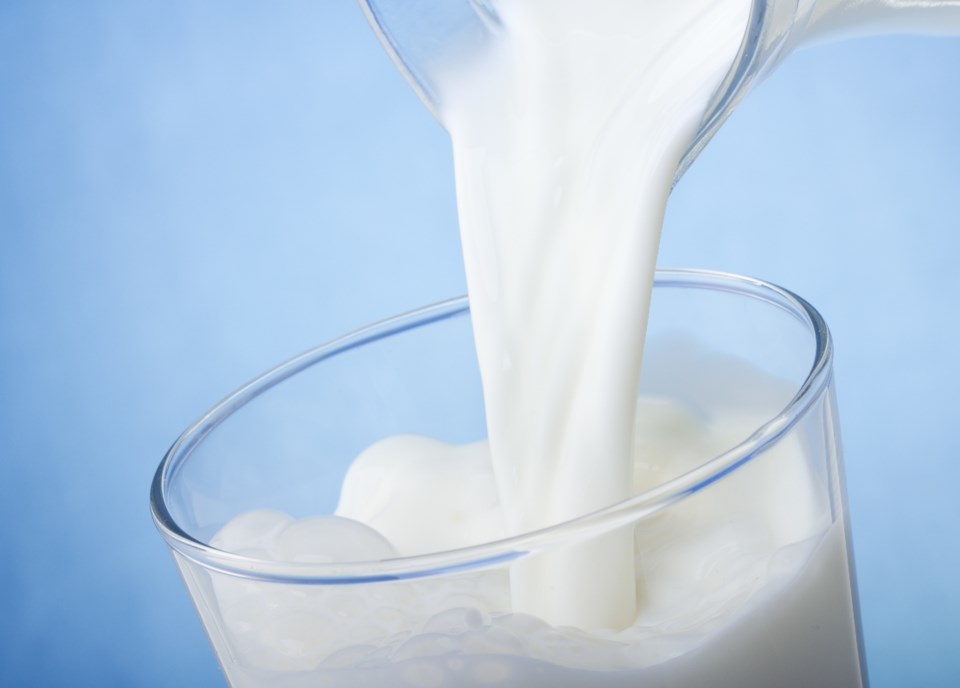Burnaby shoppers have been expressing pain about food prices, but just wait until they get a load of what’s coming with milk.
Milk and dairy prices are expected to jump after the Canadian Dairy Commission recommended an 8.4 per cent increase in farm gate milk prices.
The higher price, which works out to an extra six cents a litre, is intended to help offset rising production costs due to the COVID-19 pandemic, including soaring feed, energy and fertilizer costs, according to the federal Crown corporation.
"We're seeing that the cost of production is really going up quickly and the revenues are not following," Chantal Paul, a spokeswoman for the Canadian Dairy Commission, said in an interview on Monday.
"We felt that there was really a need for a relatively large increase this year to bring more balance between the costs and revenues for dairy farmers."
The price hike is expected to be approved by provincial authorities next month and take effect Feb. 1.
“This is outrageous,” said one Burnaby NOW reader named Gladys. “I get that things aren’t going to be the way they used to be, but it’s rough making ends meet while having to sacrifice having enough food around because the prices have gone up so much.”
And it’s not just milk. According to Statistics Canada, the price of round steak increased from $17.97 per kg in March of this year to $19.05 per kg in July. Prime rib roast jumped from $36.66 per kg to $41.39.
The price of flour, cereal, and some produce items has also crept up since spring, and more increases are expected this fall.
“I’m trying to feed a family of five and it’s ridiculous what I’m seeing on store shelves,” writes NOW reader Samantha. “And it doesn’t seem to matter which store I go to.”
Meanwhile, the dairy commission, which manages the delicate balance between dairy supply and demand in Canada, is also raising the support price for butter used in its storage programs by 12.4 per cent and recognizing a five per cent increase in milk processing costs such as packaging, labour and transportation.
It's unclear how much of the increase will be passed along to consumers.
Milk prices vary across the country, and some grocers use milk as a "loss leader" to attract customers, said Sylvain Charlebois, director of the Agri-Food Analytics Lab at Dalhousie University.
Overall, he said the retail price of milk in grocery stores could increase as much as 10 per cent while prices for dairy products like butter, cheese and yogurt could soar as much as 15 per cent.
"This is definitely a record-setting increase," Charlebois said, adding that the farm gate price hike of 8.4 per cent is nearly double the previous record of 4.52 per cent set in 2017.
- With files from the Canadian Press



